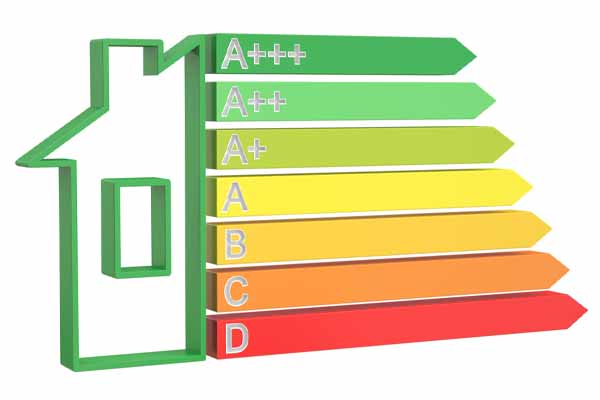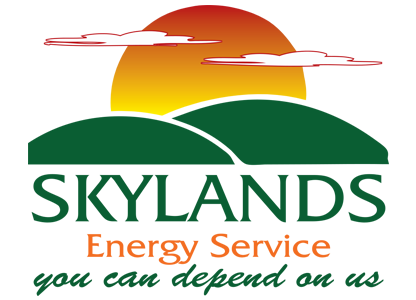 The heating system in your home is a crucial component during the cold months. It improves your level of indoor comfort and protects you and your family from illnesses linked to the cold. Likewise, it prevents winter-associated plumbing problems like frozen pipes. The correct heater is energy efficient, durable, and operates quietly. For example, an energy-efficient heating system offers benefits like low energy expenses, balanced heat distribution, and more. This article shares three ways to determine if your home has an energy-efficient heater. We also discuss tips on how to enhance your heating system’s efficiency.
The heating system in your home is a crucial component during the cold months. It improves your level of indoor comfort and protects you and your family from illnesses linked to the cold. Likewise, it prevents winter-associated plumbing problems like frozen pipes. The correct heater is energy efficient, durable, and operates quietly. For example, an energy-efficient heating system offers benefits like low energy expenses, balanced heat distribution, and more. This article shares three ways to determine if your home has an energy-efficient heater. We also discuss tips on how to enhance your heating system’s efficiency.
How to Tell If Your Heater Is Energy-Efficient
Table of Contents
Determine your home’s square footage first when you are in the process of buying a heating system. This will help you select a heating system with the correct capacity for your home. The US Department of Energy (DOE) states that older heating systems usually have around 56% to 70% energy efficiency, while modern systems can have as high as 98.5% efficiency. It should also be noted that the heating system’s efficiency can drop to up to 5% annually, depending on how the system is maintained.
Below are three factors to assist you in determining whether you have an energy-efficient heating system or not.
1. Age Of The Heating System
A typical residential heater can last 15 to 20 years. Proper HVAC maintenance can promote heating system efficiency. However, its efficiency will eventually begin dropping because of wear and tear. The heater’s age can help you determine its efficiency, as older systems are less efficient and vice versa. An HVAC professional can help you determine your heater’s efficiency if you can’t figure it out despite knowing how old it is.
Related Article: What To Do When Your Furnace Blower Keeps Running But No Heat
2. Energy Bills

Your heating requirements vary depending on the season, meaning your energy bills fluctuate. Even so, the increasing energy costs for the year shouldn’t differ that much from the previous years, unless the energy cost per unit increases over the year. If energy rates are the same, compare your energy bills from the same time of the previous year to see if there are any unexplained surges in your heating costs.
If there is an unexplained increase in your energy bills, it can be because of reduced heating system efficiency. A low-efficiency system will run harder and longer to provide adequate heat to a given space. This will consume more energy and bump up your energy costs.
3. AFUE Rating
The Annual Fuel Utilization Efficiency (AFUE) ratio is your heater’s efficiency rating. More specifically, you can learn the AFUE rating of your heating system by dividing the heat output quantity by the heat input quantity, which is the amount of fuel used in this case. For instance, if you have a heater with a 95% AFUE rating, it can convert 95% of the fuel to heat while the remaining 5% dissipates through the vent.
Most manufacturers typically place an energy label on their heating systems, where you can find the unit’s AFUE rating. Use this to determine your heater’s efficiency. If you can’t find the yellow label, find the heater’s serial or model number. Use this number to look up the AFUE rating using the manufacturer’s website. You can tell if you have an energy-efficient heater via its AFUE rating.
Related Article: Will A Gas Furnace Work Without Electricity?
How To Improve Your Heating System’s Efficiency
A low-efficiency heater can make your home uncomfortable on colder days, break down more often, and increase energy bills. Depending on what fuel-type you are using, a heater with a lower efficiency level can increase your carbon footprint. Read on to learn several tips on how you can improve the efficiency of your heating system.
- Conduct regular HVAC filter cleaning and replacements. Your furnace tends to work harder to pull air through a dirty filter. Therefore, you should regularly clean your filters and change them when necessary.
- Insulate your house. Insulating your home allows it to retain most of the heat inside, lowering the burden on your heater.
- Schedule annual HVAC checks. A heater that receives regular maintenance will offer increased efficiency. You should ensure that you hire a certified HVAC technician to check your heating system regularly. This way, any issues are repaired, and its efficiency improves.
- Use a programmable thermostat. A programmable thermostat will adjust automatically depending on the required heating level in your home. This way, the furnace only runs when needed, and even then, it only uses the amount of fuel per your heating needs.
Why You Should Replace an Outdated Heater
There will come a time when regular HVAC tune-ups don’t offer much help to increase your heater’s efficiency. When this happens, consider getting a heating system replacement so you can reap the benefits listed below:
- Enhanced Indoor Comfort: A new heater is highly efficient, so it can provide more sufficient heating to your home. Keep in mind that you require adequate heating during cold days. This will let you enjoy better comfort, which an outdated heater may not give you anymore.
- Prevent Regular Heating System Breakdowns: Old heaters are more likely to suffer frequent breakdowns because of wear and tear. When you replace your heater, you also keep this issue at bay, saving on repair costs.
- Save on Heating Expenses: High efficiency usually means lower energy costs, which are largely guaranteed when you have a new heater.
Related Article: How Variable-Speed Furnaces Improve Home Efficiency
Conclusion
The age, AFUE rating, and an examination of your energy bills can tell you whether you have an energy-efficient system. If it is energy efficient, ensure that you call an HVAC professional to check and maintain it. This way, its energy efficiency improves. However, some cases require replacing your old and outdated heater.
Call Skylands Energy Service For All Of Your HVAC Requirements
 When you need high-quality HVAC services in central New Jersey, call Skylands Energy Service. Our professionally certified technicians can perform superior heating and cooling services, such as boiler tune-ups, furnace repairs, AC replacements, and more. All our experienced and knowledgeable techs can service your HVAC system promptly and correctly.
When you need high-quality HVAC services in central New Jersey, call Skylands Energy Service. Our professionally certified technicians can perform superior heating and cooling services, such as boiler tune-ups, furnace repairs, AC replacements, and more. All our experienced and knowledgeable techs can service your HVAC system promptly and correctly.
Looking for the most affordable heating and cooling service prices in the area? Look no further than Skylands Energy Service. Our maintenance services can enhance your comfort and improve energy efficiency while reducing energy costs. If you need to repair or replace your HVAC system, we can recommend the best solution for your home while working within your budget. To ensure your satisfaction, we guarantee all our work. Call Skylands Energy Service today to book a service appointment. We offer free, in-home estimates.
Contact us now at (908) 707-1776 to find out more! Click the link to view our service area.

